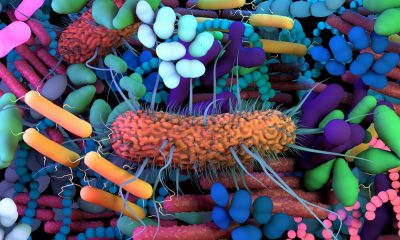Ask anyone what their favorite morning beverage is and chances are, they’ll say it’s coffee. Whether you’re cradling a mug early in the day or sipping a latte during your lunch break at work, there’s really nothing like a good cup of coffee. The caffeine wakes you up and gets you through the day while the taste relaxes you and puts you in a good mood.
Drinking coffee everyday is well-enjoyed by many, but is coffee good for the health? The good news is: Yes. An increasing number of studies can attest to its benefits. Here, we’ve listed down 13 coffee health benefits as well as the best coffees to enjoy.
1. It can improve your energy levels and keep you sharp
Coffee can help you feel less tired and improve your energy levels. This is thanks to caffeine, which gets absorbed in your system and leads to enhanced firing of neurons. It’s also just one of the many health benefits of coffee.
Looking for good coffee that is sure to wake you up? Try Strong Coffee Company’s Morning Fix Latte, made from high-quality ingredients and brings all-day focus.
2. You could get essential nutrients
Another benefit to drinking coffee is that there are a lot of nutrients found in coffee beans. This includes magnesium, niacin, pantothenic acid, vitamin B2 and potassium.
There are countless options today for people looking for naturally-made coffee like Volcanica Coffee Co.’s selection of organically-grown coffee.
3. Reduce your risk for heart disease
While some reports claimed that coffee increases your risk of heart disease, there is actually no substantial evidence to support these claims.
In fact, there are coffee options today that are actually good for the heart, like Cardiology Coffee’s whole bean coffee, which is organically grown and free from chemicals or pesticides.
4. Your liver will thank you
Drinking coffee can also help prevent common liver diseases such as hepatitis, fatty liver disease and even liver cancer. This is because coffee can protect against cirrhosis.
If you want to protect your liver, Cardiology Coffee’s organically-grown dark roast whole bean coffee is a fantastic choice that’s also free from chemicals.
5. Your DNA will be stronger
The health benefits of black coffee are well-documented. Per research, this type of coffee can help reduce the breakage of your DNA strands, which, while naturally occurring, can eventually lead to cancer or tumors.
For our dark roast recommendation, Volcanica Coffee Co.’s dark roast coffee is made from high-quality beans, has hints of heavy chocolate and is Kosher-certified.
6. Help you obtain anti-aging antioxidants
For people who are used to eating a standard Western diet, there are also well-known coffee benefits for the skin. Antioxidants can help fight free radicals and even reverse the effects of aging.
Look younger and enjoy Renude’s Chagaccino, which is sugar-free, vegan, non-GMO and made from natural ingredients.
7. Help you burn more calories and reach you fitness goals
Per one Spanish study, athletes who drank 12 ounces of coffee before working out was able to burn 15% more calories. For gym goers who also love their cup of joe, this is great news.
Maximum Slim’s Jump Start Coffee Kit is perfect for those who want to lose weight without giving up their coffee.
8. Have a pain-reducing effect
According to research made by the University of Illinois, two to three cups of coffee can also decrease a person’s pain levels, especially after a heavy workout session.
Coffee lovers can also enjoy their favorite morning brew with the additional benefit of CBD, which is shown to reduce muscle soreness. We especially love Bandholz CBD Coffee from Extract Labs for its medium-bodied flavor, perfect for coffee pod lovers.
9. It may give your workout a boost
For those who want stay in shape, the good news is that a cup of coffee can also give you a boost in your workout. Effects include improved circulation, endurance, power and muscular strength, which helps you push yourself a bit further while working out.
Check out Bulletproof’s Original Medium Roast Ground Coffee, which has distinct notes of cinnamon, plum and orange to help you relax before an intense workout session. The Bulletproof Coffee Recipe is also a favorite of ours.
10. Decaf has its own set of benefits
For those that like their coffee but don’t quite like the effects of caffeine, you’ll be glad to know that decaf has its own set of benefits. This includes antioxidants, disease protection and even an increase in your alertness.
So if you’re looking for a great decaf option, Volcanica Coffee Co.’s selection of flavor-filled decaf coffees should hit the spot and help you sleep easier at night.
11. It may lower your risk of developing Parkinson’s
According to studies, coffee drinkers have a much lower risk of suffering from Parkinson’s disease, along with other neurodegenerative diseases. Per studies, this might be due to the caffeine found in coffee.
As for which coffee to try, we recommend Death Wish Coffee Co.’s ground coffee. Tagged as the world’s strongest coffee, this oddly-named coffee brand is sure to satisfy people who like it strong but smooth.
12. If you’re consistent, coffee isn’t dehydrating
For the longest time, it’s been said that coffee can cause dehydration. However, research shows that if you’re consistent with the amount you’re drinking, it should negate the dehydrating effect.
Try Public Goods’ ground coffee, which is organically grown and made with artisan methods to provide a very balanced and consistent flavor.
13. Lower your risk of type 2 diabetes
Lastly, studies show that coffee can also lower the risk of developing type 2 diabetes, which is a major health problem affecting millions of people.
For coffee lovers, Public Goods’ whole bean coffee is made from a blend of Arabica beans from Central and South America that has a distinct flavor, which is sure to be enjoyed by all types of coffee drinkers.






















